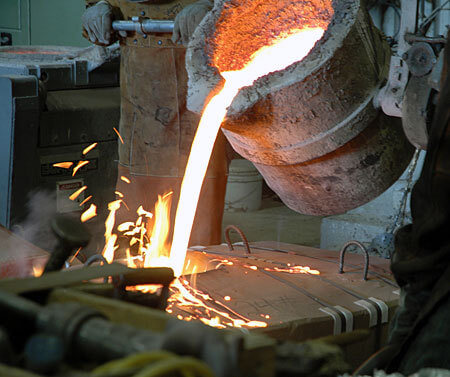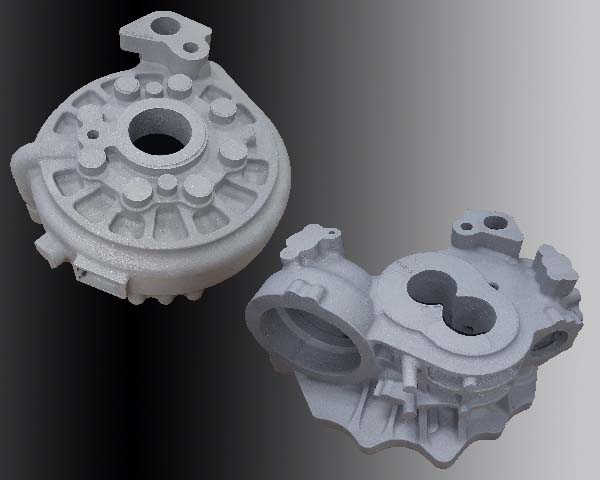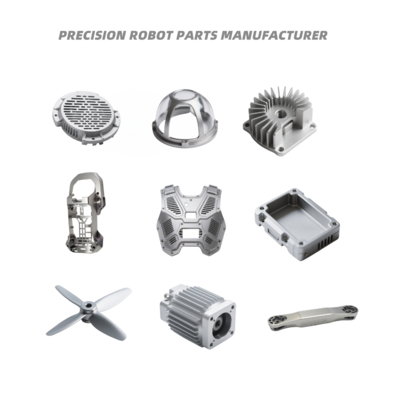How aluminum casting contributes to efficient manufacturing
Wiki Article
Exploring the Innovative Procedures Behind Modern Light Weight Aluminum Factory Workflow
Modern light weight aluminum foundry operations are going through significant transformation. Automation and AI are reshaping production approaches, improving both effectiveness and accuracy. The assimilation of 3D printing is streamlining mold and mildew production, while sustainability methods are coming to be much more important. Each of these advancements plays a crucial role in redefining the industry. Nevertheless, the implications of these modifications expand past mere production effectiveness. What possibilities and difficulties lie ahead for light weight aluminum factories in this developing landscape?The Duty of Automation in Light Weight Aluminum Foundries

Additionally, automation adds to boosted safety criteria within the foundry setting. By moving dangerous jobs to devices, human employees can concentrate on managerial duties and quality assurance, reducing the danger of accidents. On top of that, information analytics stemmed from automated procedures offer beneficial understandings right into functional performance, leading to far better decision-making and continuous enhancement. As the need for aluminum products grows, the adoption of automation modern technologies will likely broaden, even more transforming the landscape of aluminum foundry procedures.
Advancements in Spreading Technologies
Recent developments in casting innovations are transforming aluminum factory procedures. Innovations such as 3D printing assimilation, advanced alloy formulations, and automated procedure optimization are boosting efficiency and item high quality. These growths are crucial in meeting the progressing demands of the industry.3D Printing Integration
Integrating 3D printing technology into light weight aluminum foundry operations has revolutionized typical spreading methods, improving both performance and accuracy. This ingenious method permits for the fast manufacturing of complex molds and cores, greatly minimizing preparations and material waste. By making use of additive production, foundries can create complex geometries that were formerly tough or difficult to accomplish with traditional methods. The adaptability of 3D printing also allows fast style adjustments, fostering an extra active manufacturing process. Additionally, this assimilation sustains using light-weight structures, which is significantly vital in sectors such as auto and aerospace. As aluminum foundries continue to adopt 3D printing, they place themselves at the center of technological advancement, driving renovations in product top quality and functional abilities.Advanced Alloy Formulations
The growth of innovative alloy formulations has actually substantially boosted spreading modern technologies in aluminum shop procedures. These formulas integrate different aspects, such as magnesium, copper, and silicon, to enhance mechanical residential or commercial properties and thermal resistance. By customizing the structure of light weight aluminum alloys, suppliers can attain particular efficiency qualities that meet the demands of diverse applications, from automotive components to aerospace structures. Using advanced alloys also adds to lowered weight and enhanced strength, which are essential consider modern design. In addition, developments in alloy growth allow far better fluidness during spreading, resulting in boosted surface finishes and minimized issues. On the whole, progressed alloy formulas stand for a significant leap ahead, placing light weight aluminum factories to satisfy the progressing requirements of numerous markets successfully.Automated Refine Optimization
Innovations in casting technologies have led the way for automatic process improvement in light weight aluminum shop operations. By incorporating advanced software and real-time information analytics, foundries can now improve production processes and boost quality assurance. Automated systems check variables such as air conditioning, temperature level, and pressure prices, permitting prompt changes that lessen defects and waste. Additionally, device knowing formulas evaluate historical efficiency data to anticipate suitable setups, thereby enhancing efficiency and reducing cycle times. Robotics likewise play a substantial role, taking care of repetitive tasks that improve safety and accuracy. In general, these developments not only drive operational performance but also make it possible for foundries to fulfill the growing need for top quality aluminum components in various industries.Smart Manufacturing and Market 4.0 Assimilation
The combination of Smart Production and Industry 4.0 within light weight aluminum shops is transforming functional effectiveness. By leveraging IoT innovations, automation, and robotics, shops can maximize manufacturing procedures and minimize downtime. Furthermore, information analytics supplies crucial understandings that boost decision-making and drive continual enhancement.IoT in Shop Operations
As producers progressively embrace the Net of Points (IoT), factory procedures are experiencing a transformative shift towards clever manufacturing and Industry 4.0 assimilation. Precision aluminum casting. IoT modern technologies make it possible for real-time data collection and analysis, improving decision-making processes and operational efficiency. Sensors and connected gadgets keep track of equipment efficiency, material usage, and ecological conditions, enabling proactive maintenance and source optimization. This connectivity cultivates a more dexterous manufacturing environment, Aluminum Casting Company where adjustments can be made quickly in feedback to market demands. Furthermore, IoT promotes improved traceability and quality control, as information from the entire production cycle can be conveniently accessed and assessed. On the whole, the integration of IoT in foundry procedures significantly enhances performance and drives development in light weight aluminum production proceduresAutomation and Robotics Assimilation
Automation and robotics assimilation is revolutionizing aluminum shop operations by boosting efficiency and accuracy. This transformative strategy simplifies processes such as molding, putting, and completing, lowering human mistake and boosting output consistency. By using advanced robot systems, foundries can accomplish greater production rates while keeping stringent quality criteria. Automated systems likewise allow real-time surveillance and adaptive control, permitting quick adjustments to manufacturing parameters. Furthermore, the combination of robotics decreases labor prices and alleviates security dangers associated with hands-on handling of molten metal. As factories embrace smart manufacturing concepts fundamental in Sector 4.0, the harmony in between automation and robotics solidifies their one-upmanship, paving the way for lasting growth and development in the light weight aluminum casting industry.Data Analytics for Performance
Utilizing data analytics considerably improves performance within light weight aluminum factory procedures, aligning with wise production and Market 4.0 principles. By leveraging real-time information collection and analysis, factories can keep an eye on manufacturing processes, anticipate devices failings, and optimize source appropriation. This data-driven method helps with insightful decision-making, allowing supervisors to recognize traffic jams and enhance process. In addition, anticipating analytics empowers foundries to expect market needs, thereby reducing waste and making certain timely item distribution. Integration of information analytics with IoT gadgets improves operational visibility, fostering a proactive maintenance culture. Ultimately, applying these sophisticated analytical techniques not only increases performance but additionally drives development, placing aluminum foundries to satisfy the advancing needs of the sector while maintaining one-upmanships in a quickly altering landscape.Sustainable Practices in Aluminum Spreading
While the aluminum casting market has generally encountered ecological challenges, numerous factories are currently taking on sustainable methods to minimize their influence (Aluminum Foundry). A considerable focus has been on recycling light weight aluminum scrap, which not just lowers waste but also preserves power contrasted to primary aluminum manufacturing. Innovative melting innovations, such as induction heating systems, boost power efficiency and reduced greenhouse gas emissionsAdditionally, shops are executing closed-loop water supply to decrease water usage and lower thermal air pollution. The use of environmentally friendly binders in mold-making processes is getting grip, further lowering dangerous discharges.
Some facilities are investing in sustainable energy sources to power operations, aligning with international sustainability objectives. By integrating these techniques, the light weight aluminum casting market is progressing towards a more eco accountable future, showing that economic development can exist together with environmental stewardship - Precision aluminum casting. These efforts show a dedication to sustainability and the relevance of ecological liability in manufacturing
Quality Control Innovations
As the light weight aluminum casting sector advancements towards sustainability, the significance of high quality control developments becomes progressively evident. Modern aluminum foundries are embracing advanced modern technologies to improve their quality control processes. Techniques such as real-time surveillance and data analytics enable makers to discover variances and defects early in the production cycle. Executing automatic inspection systems furnished with machine discovering algorithms warranties that items satisfy rigorous top quality criteria while decreasing human mistake.Additionally, the integration of non-destructive screening approaches, such as ultrasonic and radiographic assessments, offers much deeper understandings into the honesty of spreadings without harming the product. These developments not just improve item integrity but likewise decrease waste, straightening with sustainability objectives. On top of that, the adoption of standard top quality frameworks helps streamline operations across different factories, assuring uniformity in output. Jointly, these improvements are improving quality control, cultivating a society of excellence within the aluminum casting field.
Future Patterns in Aluminum Factory Operations
What innovations exist ahead for aluminum factory operations? The future of light weight aluminum foundries is poised for improvement with improvements in automation, man-made knowledge, and sustainable techniques. The combination of robotics and automated systems is anticipated to boost effectiveness and accuracy in the casting processes, minimizing human error and labor prices. In addition, AI-driven analytics will certainly make it possible for real-time monitoring and anticipating upkeep, enhancing functional performance and minimizing downtime.Sustainability remains a prime focus, with shops significantly embracing environment-friendly techniques, such as utilizing recycled light weight aluminum and establishing low-emission melting innovations. Innovations in 3D printing are likewise prepared for to reinvent mold-making, permitting for complicated geometries and minimized material waste. As the sector embraces digitalization, data-driven decision-making will certainly come to be crucial, making it possible for shops to react swiftly to market needs. Jointly, these patterns guarantee to redefine aluminum shop procedures, making them a lot more reliable, lasting, and versatile to future obstacles.

Regularly Asked Concerns
What Precaution Are Implemented in Light Weight Aluminum Factory Operations?
Light weight aluminum factory operations carry out different precaution, including individual protective equipment, ventilation systems to manage fumes, routine safety training, emergency situation feedback strategies, and rigorous tracking of temperature and tools to stop accidents and assurance worker security.Exactly How Do Foundries Handle Workforce Training for New Technologies?

What Materials Are Frequently Reused in Light Weight Aluminum Foundries?
Aluminum foundries generally recycle scrap aluminum, including post-consumer items like beverage canisters, automotive components, and building materials. This reusing process reduces waste and saves resources, adding to a more lasting aluminum production industry.Exactly How Does Light Weight Aluminum Casting Effect the Atmosphere?
Aluminum casting impacts the setting with energy-intensive procedures, greenhouse gas discharges, and possible regional air pollution. Developments in reusing and lasting methods can reduce these effects, advertising a much more green method to light weight aluminum manufacturing.What Are the Common Lead Times for Aluminum Spreading Projects?
Regular lead times for light weight aluminum spreading projects vary substantially, normally varying from 2 to six weeks. Elements affecting these timelines consist of complexity, order size, and material accessibility, impacting overall manufacturing schedules in shop procedures.
Automation increasingly plays an important role in light weight aluminum foundries, boosting effectiveness and precision in the manufacturing procedure. Advancements in casting technologies have paved the method for automated procedure improvement in light weight aluminum foundry procedures. Harnessing information analytics significantly improves efficiency within aluminum foundry procedures, straightening with clever manufacturing and Sector 4.0 principles. A significant focus has actually been on recycling aluminum scrap, which not only decreases waste yet additionally conserves power contrasted to main aluminum manufacturing. Aluminum shops generally reuse scrap aluminum, consisting of post-consumer products like beverage containers, vehicle components, and building products.
Report this wiki page